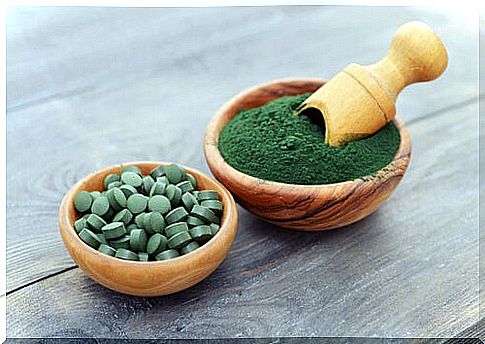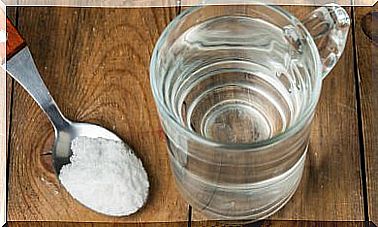Spirulina: What Is It And What Are Its Benefits?
Spirulina is a nutritional supplement that comes from a cyanobacterium of the genus Arthrospira. These unicellular organisms have been consumed for millennia, although they did not begin to be exploited commercially until the 21st century.
Here are the most important benefits that spirulina could bring us for our health.
1. Could boost the immune system
The immune system fights any invasive element, whether tumorous or infectious, that threatens the balance of our body. As it turns out, this incredible blue-green algae could be a great ally.
This is due to the arsenal of polysaccharides (Ca-Spirulan) and antioxidants that it has (vitamin E, beta-carotene and phycocyanin). Also amino acids like alanine and pantothenic acid.
However, we must not forget that numerous studies are still needed to determine these kinds of claims.

2. Helps treat chronic diseases
Chronic diseases cause very serious problems not only on a physical level, but also on a psychological level. Fortunately, spirulina can give us some support with some conditions:
- Cancer: A study published in the medical journal Cancer Science highlights that spirulina could have a beneficial effect in reducing the appearance and progress of certain tumors. However, for now, the scientific evidence is limited.
- Diabetes: Due to the glucose-regulating effect of complex carbohydrates, such as magnesium, chromium, and vitamins B1, B12, and B3, it could benefit patients with diabetes. Additionally, as data from the Journal of Medicinal Food point out , supplementing with this ingredient could significantly lower blood sugar levels.
- Cardiovascular diseases, since it protects the system through essential fatty acids, vitamins E and B6 and selenium. In addition, it lowers the level of cholesterol in the blood through gamma-linolenic acid and niacin.
- Arthritis is fought by antioxidants, gamma-linolenic acid, serine and pantothenic acid, essential according to various studies to face this pathology.
- Osteoporosis: the minerals it contains help prevent loss of bone density.
It should be noted that it is always advisable that you consult a doctor in the event that you suffer from any of these pathologies. Thus, you will know if it is convenient for you to consume spirulina as a supplement or not.
3. Additional benefits of spirulina
- It is believed that it could help you lose weight. However, there is no scientific evidence to support it, so it is important to remember that if we want to lose weight we must first go to an endocrinologist.
- The carotenoids and riboflavin contained in spirulina may prevent eye problems.
- It would help prevent and fight anemia due to its high levels of iron, magnesium, folic acid and vitamins B6 and B12.
- It would offer a great stimulus to brain function thanks to its amino acids and its high content of vitamins B3, B1 and zinc.
- It could reignite the livid, although research, for now, has only been done on animals.

How to consume spirulina
On the one hand, you can consume it powdered. It is sold in bulk and can be added very easily to juices, smoothies and smoothies. Another way of taking it is in capsules, whose consumption in larger doses is easier since it is more concentrated. However, we recommend that you consult a specialist to find out the recommended dose in your case.









